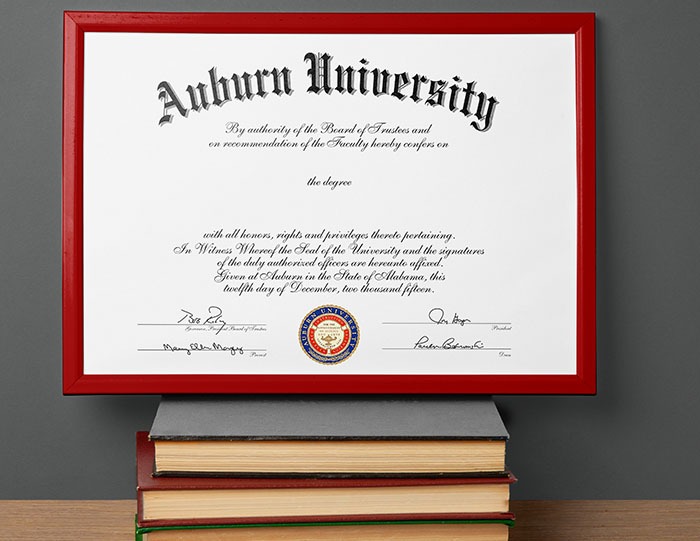Acquiring a Fake Diploma Online: Risks, Realities, and Safer Alternatives
The digital age has made many things easier, but has also contributed to the rise of fake online diplomas. While these counterfeit documents may seem like a convenient shortcut, they carry serious ethical, legal, and career risks. Awareness of these dangers—and exploring safer alternatives—can help individuals avoid long-term consequences.


Understanding the Appeal of Fake Diplomas
Before diving into the dangers, it helps to understand why people seek fake diplomas:
Quick Career Boost: Many believe a diploma—even a fake one—can lead to higher-paying jobs or promotions.
Social Pressure: Expectations from family, peers, or society often push individuals to meet educational milestones, even dishonestly.
Cost and Time Savings: A legitimate degree can take years and cost tens of thousands of pounds. Fake diplomas may seem faster and cheaper, but they carry serious risks.
Perceived Competitiveness: Some think that a diploma, regardless of authenticity, is an advantage in competitive job markets.
While these reasons seem tempting, the risks far outweigh any perceived benefits.
The Ethical Dilemma: Shortcuts vs Integrity
Using a fake diploma raises serious ethical questions:
Misrepresentation: Claiming qualifications you do not possess is dishonest and can undermine your credibility.
Trust Erosion: Once exposed, deception can damage personal and professional relationships permanently.
Professional Reputation: Integrity is often valued over a single certificate; violating this principle can close future opportunities.
Even a minor ethical lapse can create a ripple effect, impacting your career, relationships, and personal integrity.
Legal Risks of Fake Diplomas
The legal consequences of using or selling counterfeit diplomas are severe:
Criminal Charges: Forgery, fraud, and misrepresentation can lead to criminal prosecution.
Financial Penalties: Individuals may face fines or restitution demands.
Imprisonment: Serious cases, particularly when diplomas are used for employment or financial gain, may result in jail time.
For example, authorities in countries like the UK and the US actively investigate fraudulent academic credentials. Even if legal action isn’t taken immediately, being exposed can damage your record and limit future employment opportunities.
Professional Consequences and Workplace Risks
Fake diplomas can have immediate and long-term career consequences:
Job Loss: Companies routinely verify credentials, and discovering a fake diploma can result in instant termination.
Skill Gaps: A diploma without knowledge leaves individuals unprepared for responsibilities, leading to poor performance.
Stalled Growth: Misrepresentation can prevent career advancement and limit access to networking or training opportunities.
Industries with strict licensing and certification requirements—such as healthcare, education, and engineering—are particularly unforgiving. Using fake qualifications in these fields can have serious, even catastrophic, consequences.
Impact on the Broader Academic and Employment Landscape
The proliferation of fake diplomas is not just an individual issue; it affects society at large:
Employer Skepticism: HR teams may scrutinize all applicants more closely, increasing verification burdens for everyone.
Reduced Trust: As fake diplomas become more common, the value of legitimate academic achievements is diluted.
Meritocracy Erosion: Hard-working students and professionals face unfair disadvantages due to widespread skepticism.
Fake diplomas can create a professional environment where effort and merit are undervalued.
How Online Fake Diploma Services Operate?
Fake diploma providers use sophisticated methods to lure buyers:
High-Quality Forgeries: Professional templates, realistic paper, embossed seals, and custom signatures make diplomas appear genuine.
Customization Options: Buyers can often select institution names, graduation dates, and degree types.
Deceptive Marketing: Websites use testimonials, sample diplomas, and convincing “verification services” to build trust.
Bundled Services: Some offer higher prices for transcripts, recommendation letters, or fake verification systems.
Awareness of these tactics can help individuals identify suspicious offers and avoid legal or financial consequences.
Spotting a Fake Diploma Before Purchase
For both employers and individuals, spotting fake diplomas early is critical:
Check Institution Legitimacy: Verify that the institution exists and is accredited.
Examine Details Closely: Look for spelling errors, misaligned fonts, or inconsistent seals.
Verify Through Official Channels: Contact the school or use accredited third-party verification services.
Beware of “Too Good to Be True” Offers: Extremely low prices and instant delivery are red flags.
This proactive approach prevents being deceived by counterfeit documents.
Safer and Legal Alternatives
Instead of pursuing illegal shortcuts, there are legitimate ways to boost qualifications:
Accredited Online Programs: Many universities offer affordable, flexible online degrees recognized globally.
Professional Certifications: Short courses in IT, finance, project management, or healthcare provide verifiable credentials.
Skill-Building and Portfolios: Practical experience and demonstrable skills often outweigh formal degrees in specific industries.
Continuing Education Programs: Adult education, executive courses, and MOOCs offer learning opportunities without breaking the law.
These alternatives provide tangible benefits without the ethical, legal, or career risks associated with fake diplomas.
Real-Life Cases and Lessons Learned
Several high-profile incidents illustrate the dangers:
A UK teacher was dismissed and prosecuted after using a fake teaching qualification to secure employment.
A US employee faced criminal charges and fines after presenting a counterfeit degree to gain a managerial role.
Large companies report significant financial and reputational losses when employees misrepresent their qualifications.
These examples show that no shortcut is worth the long-term consequences. The temptation to obtain a fake diploma online can be strong, but the reality is apparent: the risks far outweigh any perceived benefits. Legal penalties, career setbacks, and ethical breaches can have long-lasting consequences.
However, investing in genuine education and skill development fosters sustainable career growth, credibility, and personal satisfaction. Achievements earned through honesty and effort are far more meaningful and enduring than any counterfeit credential.
FAQs: Acquiring a Fake Diploma Online
Is it illegal to buy a fake diploma online?
Yes. Using a counterfeit diploma can break the law. Depending on the jurisdiction, it may be treated as fraud or forgery and carry fines, criminal charges, or jail time.
Can employers detect fake diplomas?
Absolutely. Most employers verify educational credentials directly with the issuing institution or through third-party verification services. Even high-quality fake diplomas may appear genuine, but these checks typically reveal inconsistencies.
What are the risks of using a fake diploma for a job?
Using a fake diploma can result in job termination, damaged professional reputation, legal action, and limited future career opportunities. It can also harm colleagues or clients if used in regulated fields like healthcare or finance.
How can I check if a diploma is real?
You can verify a diploma by contacting the issuing institution, checking accreditation, requesting official transcripts, or using specialized third-party verification services. Always rely on official channels to confirm authenticity.
Are fake diplomas only used for jobs?
No. Some people use fake diplomas to gain social status, obtain immigration status, or gain admission into programs. However, all of these uses carry ethical and legal risks.
Are online fake diploma providers trustworthy?
No. These websites often employ deceptive marketing to appear legitimate. Even if they deliver a “realistic” diploma, it is still fraudulent and carries significant consequences.
The temptation to purchase a fake diploma online, while seemingly offering a shortcut to success, harbors a myriad of ethical, legal, and professional hazards. These ramifications not only affect the individual involved but also undermine the foundation of trust and meritocracy that sustains professional and academic environments.
